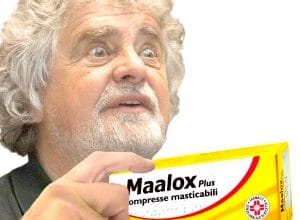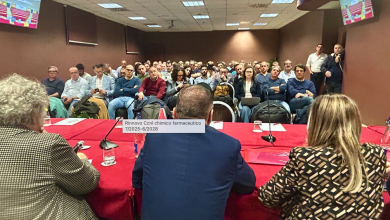
«The stability of the patient's therapy is only the concern of the general practitioner while the pharmacist often dispenses the drug he has available in the unit without checking that the patient always takes the same drug».
A general practitioner who, where he has the possibility of choosing whether or not to apply the non-substitutability clause, seeks a balanced relationship between the patient's needs and therapy, guaranteeing the stability of the patient's treatment especially in the most critical cases and in which the compliance may otherwise be affected. This is the photograph that emerges from the Survey on the prescribing habits of general practitioners launched by Simg at the end of February, through a questionnaire distributed via email and made available online, according to the words of Claudio Cricelli, president of the company. The survey, which received Zentiva's unconditional grant, counted a total of 407 users who responded. What emerges is "a general practitioner" continues Cricelli "who uses the active ingredient more and more in his prescriptions and who relates, in the choice of non-substitutability, to the circumstances". One of the considerations is that «the stability of the patient's therapy is only the concern of the general practitioner while often the pharmacist dispenses the drug that is available in the unit without checking that the patient always takes the same medicine. And often it is the patient himself who requests the replacement of the prescription in the pharmacy, mostly preferring the brand». The survey therefore shows that "doctors tend to use the non-substitutability clause when it is important to maintain stability in treatment, guaranteeing the dispensing of the same drug, whatever it may be, and when dealing with a critical patient, in whom compliance could be altered in case of a replacement – for example in front of elderly patients dealing with chronic pathologies. In cases where the substitution in the pharmacy is not considered relevant or dangerous, the doctor tends not to intervene much ». In fact, the survey shows that the 26% always checks whether the "patient always takes the same equivalent drug (same pharmaceutical company that you indicated in the prescription) or whether the pharmacist dispenses a different equivalent drug based on its availability" of doctors, while the 66% answered a few times. When asked "What percentage of patients have their brand prescription changed for an equivalent drug" it was the 30% of the doctors who answered "more than 40% of the time", while the 40% believes they do it "between 10 and 40% sometimes». Also when faced with the question «You have a 50-year-old patient treated for arterial hypertension with brand-name beta blockers. What makes you put the wording: Non-replaceable» the 15% says that it «doesn't trust the substitution made by the pharmacist», the 44% says it «doesn't trust the variability with which the pharmacist changes the branded product at each request», for the '8% «Beta blockers are dangerous drugs to change» and for 33% «all the previous ones». Finally, the 69% of doctors believes that they prescribe more than the 40% of the time «the active ingredient + the trade name of the drug out of the total number of prescriptions», while the 18% says that this value is between «between 10 and 40% of the times». Furthermore, "The non-substitutability clause associated with a prescription for an equivalent drug (e.g. non-substitutable Ramipril) (out of the total prescriptions of off-patent active ingredients)" is never entered for 34% of the answers, while less than 30% is used sometimes by the doctors' 49%. «I believe that the results of the survey conducted by Simg are perfectly consistent with our perception of the current situation in the country and confirm the validity of the strategy based on the quality of our medicines and on the construction of added value services and information» is the comment of Marco Grespigna, director Bu Sanofi Off Patent and Zentiva Italia who adds: «We very gladly accepted the request of the president of Simg, Claudio Cricelli, to join this survey aimed at investigating the dynamics that govern the substitution of a drug by the patient and the effects on therapeutic adherence and prescribing appropriateness. A better understanding of these issues and of the patient's perception can only have positive effects on the activity of all of us; it also follows a greater tranquility and awareness of the patient.
Frances Giani
Tuesday, 01 July 2014 – Doctor33
TO





